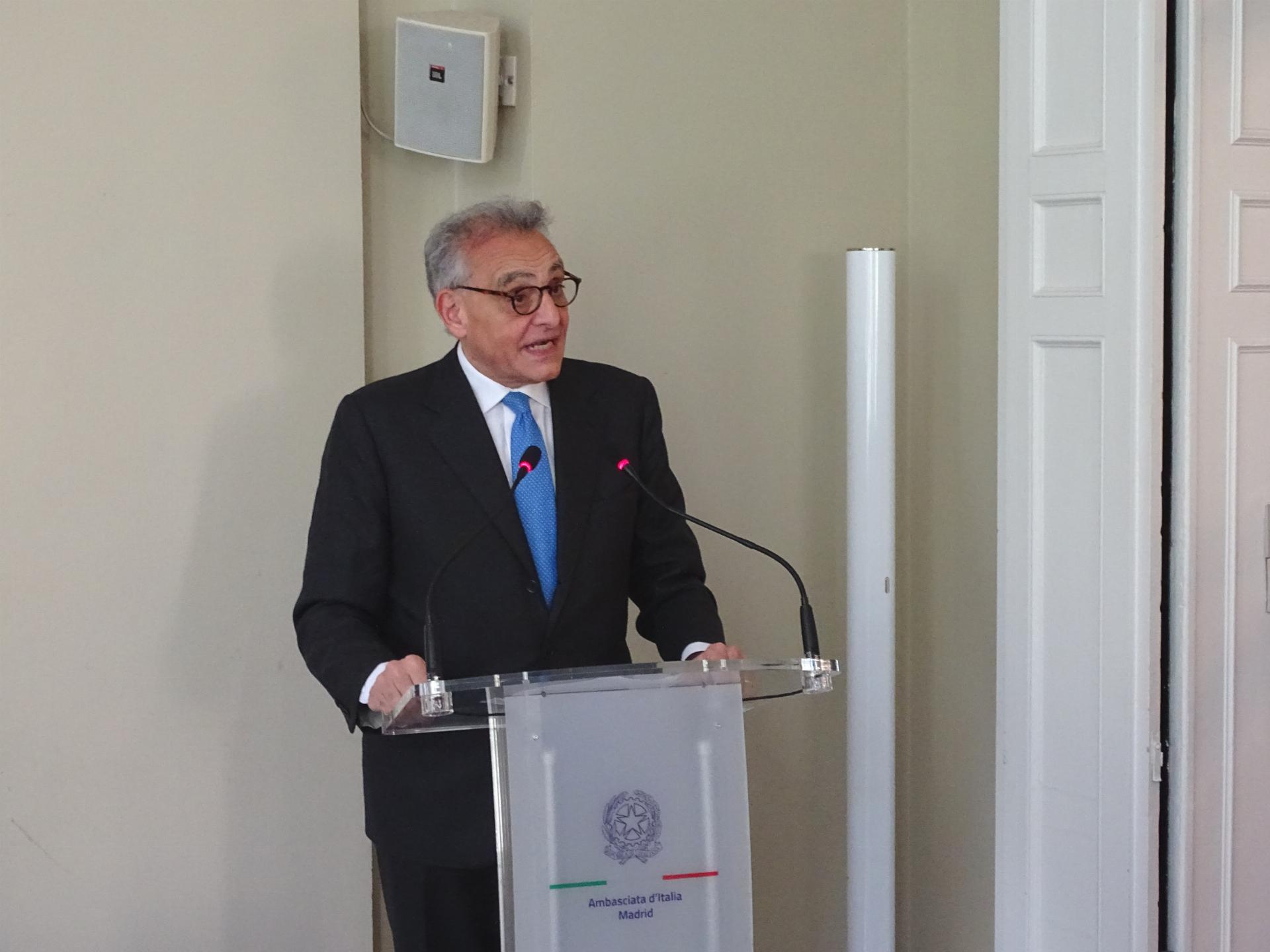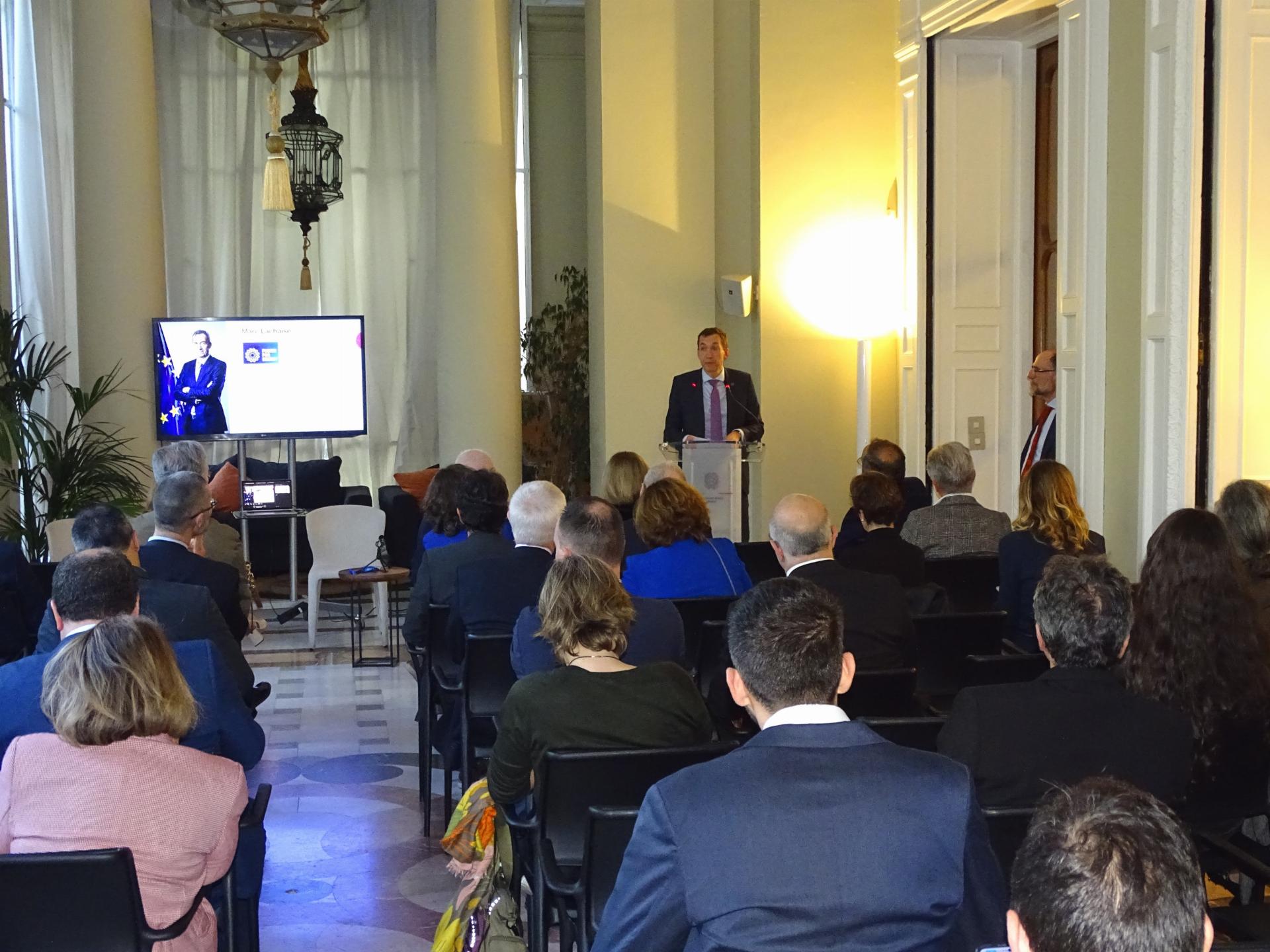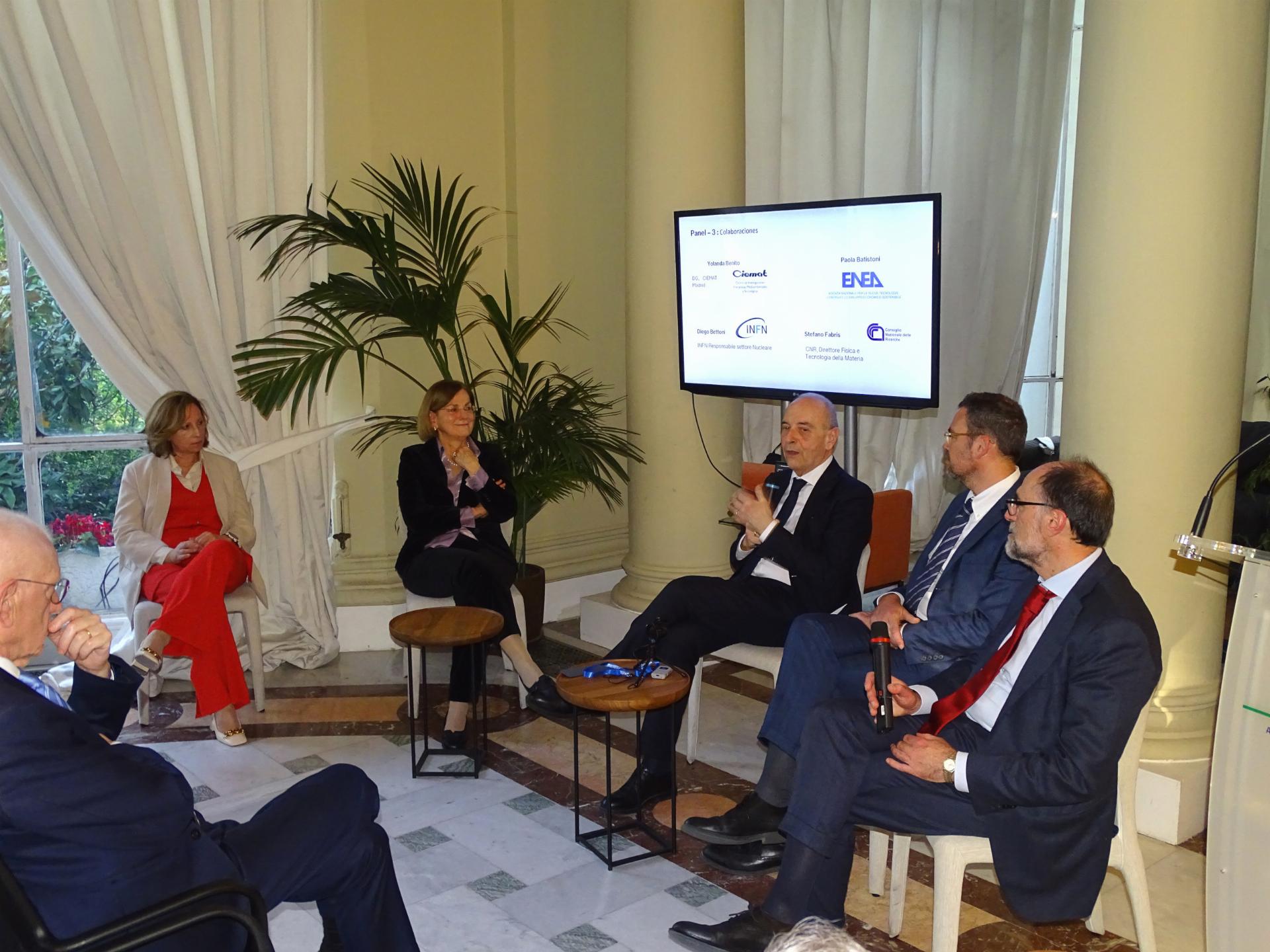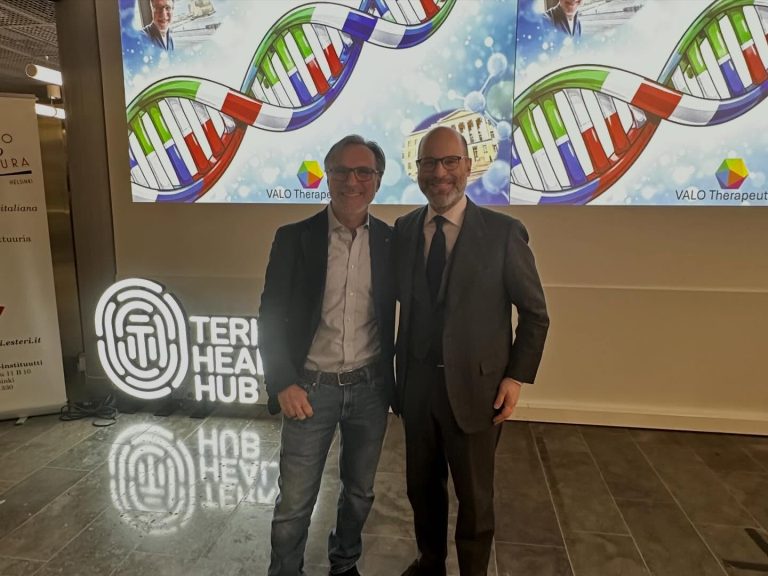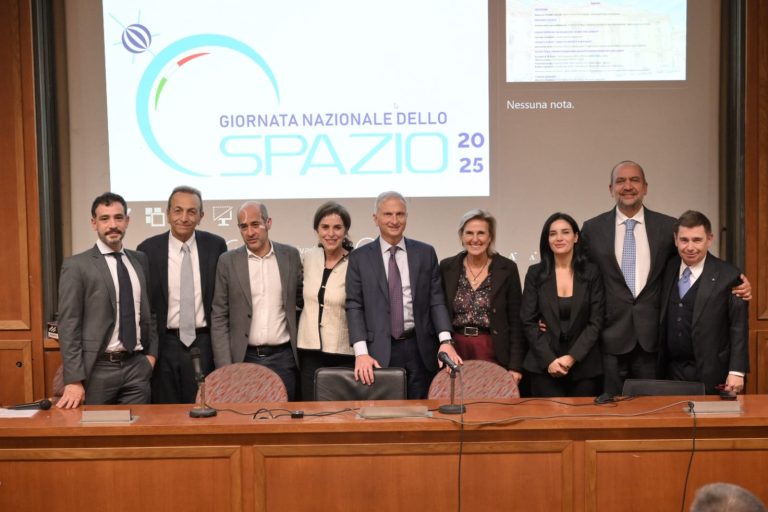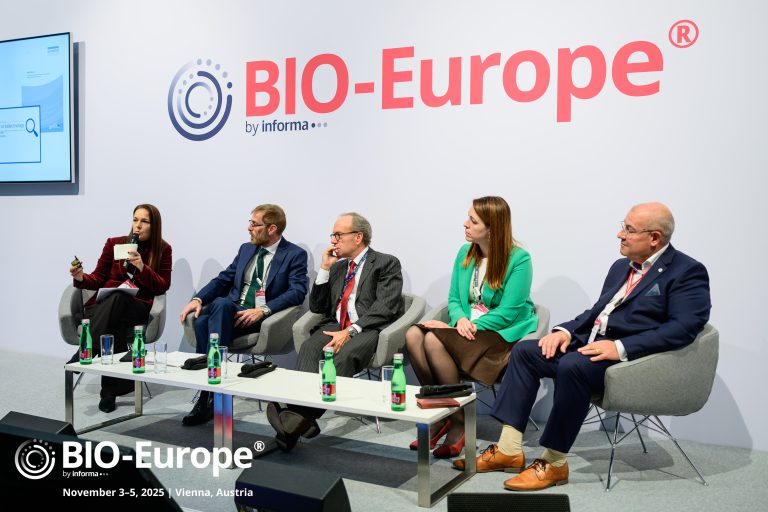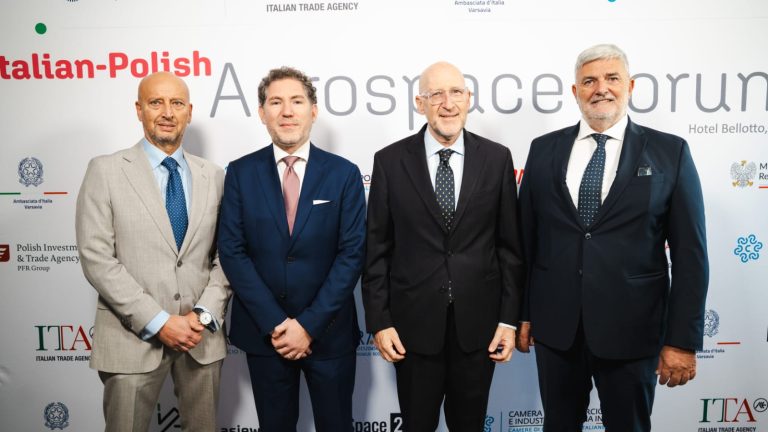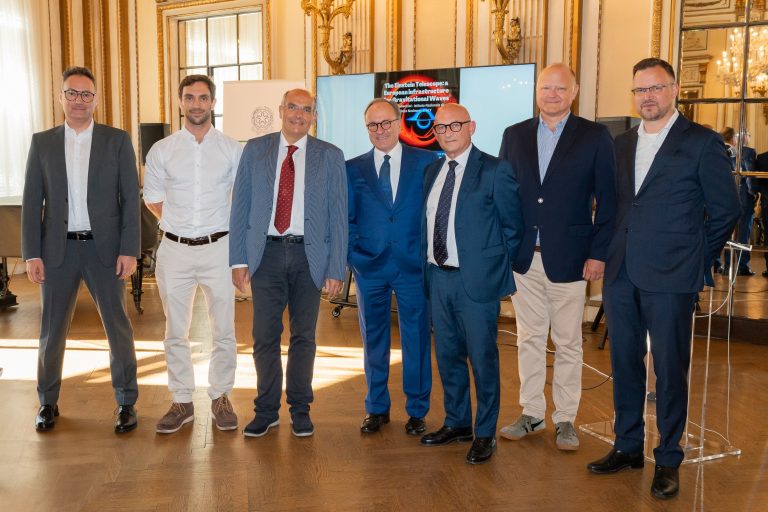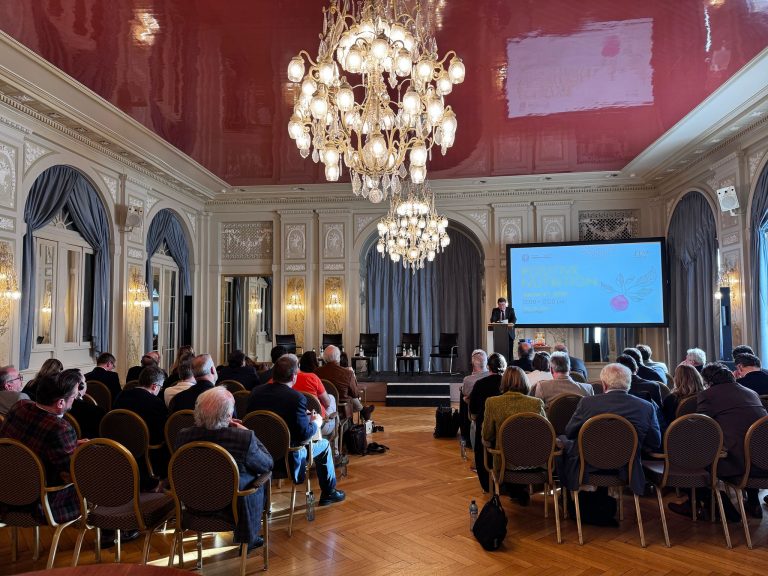The Italian Embassy in Madrid organised the event “Nuclear Fusion: Perspectives and Challenges for the Decarbonisation of the Planet” on 9 April, as part of the 2025 Italian Research Day in the World (GRIM), established in 2018 by the Ministry of Education, University and Research with the aim of promoting and enhancing the expertise and contributions of Italian researchers to the global research community, as well as the image of Italy as a producer of high-quality science and innovation. The event was attended by prominent figures in the field of research, as well as representatives from fifteen major Italian and Spanish companies active in the sector.
In his opening remarks, Ambassador Giuseppe Buccino Grimaldi emphasised the global importance that nuclear fusion could have, potentially becoming “an abundant, safe, accessible, and environmentally friendly source of energy in the medium term, helping to limit the effects of climate change, which is severely affecting both our countries“. He also highlighted the significant efforts Italy and Spain are investing in not only multilateral projects but also bilateral ones, as demonstrated by “the explicit mention of Nuclear Fusion in a memorandum of understanding on basic research between Italy and Spain, signed last year,” as well as “Italy’s strong interest in a large international laboratory under construction in Granada, where materials for future reactors will be studied”.
The Ambassador also remembered prominent Italian figures in the field of fusion research, such as Francesco Romanelli, who “directed the world’s largest magnetic confinement fusion experiment, JET, near Oxford for many years,” and Pietro Barabaschi, “who is currently leading the construction of ITER in France, the large international reactor successor to JET, in which we place great hopes“. He also thanked the Spanish research institutions represented at the event by Yolanda Benito and Inmaculada Figueroa.
The event, divided into three panels, was moderated by the Embassy’s Scientific Attaché, Professor Sergio Scopetta, who introduced the concept of fusion from a microscopic perspective for the benefit of the less experienced audience.
For each panel, notable scientific and academic personalities spoke. Initially, Paola Batistoni, Head of the Fusion Development Unit at the Italian National Agency for New Technologies, Energy and Sustainable Economic Development (ENEA), Carlos Hidalgo, Director of the National Fusion Laboratory at the Research Center for Energy, Environment and Technology (CIEMAT), and Pedro Velarde, Professor at the Universidad Politécnica de Madrid, described the state of research in both countries. The second panel covered two large international projects under construction in Italy and Spain. The Divertor Tokamak Test (DTT) facility in Frascati was introduced by President Francesco Romanelli, while International Fusion Materials Irradiation Facility – Demo Oriented NEutron Source (IFMIF-DONES) in Granada was presented by Scientific Director Ángel Ibarra. The two projects address two key challenges for future reactors, namely the efficient use of the enormous energy expected from future reactors and the characterisation of the materials to be used. The speakers strongly agreed on a new operational paradigm, which is to include the industry from the design phase of the initiatives, not just during the implementation phase, in order to ensure the required speed of execution. The role of industry in the projects was exemplified by Francesca Ferrazza, head of ENI’s Magnetic Fusion Initiatives unit, a company internationally active in all aspects of nuclear fusion, and Ana Belén del Cerro, Industrial Liaison Officer at the “Centre for Technological and Industrial Development (CDTI)”. The Director of the European Agency “Fusion for Energy”, Marc Lachaise, outlined Europe’s role in large international projects.
Finally, Yolanda Benito, Director-General of CIEMAT, Stefano Fabris, Director of the Physics Department at the Italian National Research Council (CNR), Diego Bettoni, Head of the Nuclear Division at the National Institute for Nuclear Physics (INFN), and Paola Batistoni (ENEA) discussed institutional perspectives. The importance of bilateral cooperation between Italy and Spain was reiterated, particularly for the IFMIF-DONES project. The Italian speakers also stressed the need for greater coordination and the need to support training activities, which have been partially interrupted in Italy with the abandonment of fission projects. Attention must also be given to attracting new talents, to ensure generational turnover in the leadership of fusion projects. Given the recent attention devoted to this sector in Italy, including at the governmental level, this moment appears particularly favourable for action.


